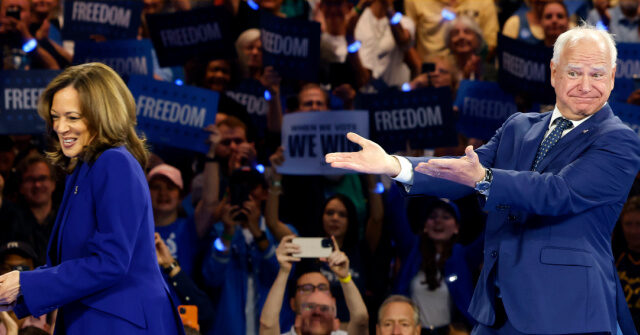In a recent discussion on Breitbart News Daily, John McLaughlin, a campaign pollster for Donald Trump, analyzed the dynamics that contributed to the left’s electoral losses, particularly focusing on the contrasting approaches of the Democratic Party and Trump’s campaign. McLaughlin emphasized that the Democrats have consistently refused to accept responsibility for their policy failures, which included issues related to immigration, inflation, and a perceived lack of efficacy in dealing with foreign adversaries. In contrast, he characterized Trump’s campaign as heavily centered on well-defined policies and solutions, arguing that this approach resonated more effectively with voters.
McLaughlin highlighted Vice President Kamala Harris’s campaign strategy, describing it as overly fixated on character assassination, particularly aimed at Trump. He noted that while Harris pursued a negative campaign, Trump was focusing on engaging with voters through more relatable and personable tactics. For instance, Trump made bold appearances, such as visiting fast-food chains and driving a garbage truck to rallies, which contributed to his image as a more accessible and likable figure. McLaughlin stated that by the end of the campaign, many voters viewed Trump not only as a viable leader but also as someone who could better handle pressing issues like inflation, immigration, and crime.
Moreover, McLaughlin pointed out that Trump’s campaign succeeded in broadening its appeal by gaining support from key demographic groups, including black Americans, Hispanic Americans, suburban women, and young voters. He stressed that Trump was committed to addressing national concerns and was particularly focused on reinstating policies that he believed were beneficial for the American populace. McLaughlin argued that the disintegration of Trump’s policies under President Biden, notably following the chaotic withdrawal from Afghanistan, played a significant role in rekindling interest in Trump as a leader who could restore order and stability.
As the conversation shifted towards Biden’s leadership, McLaughlin made it clear that the core of the problem for Democrats stemmed from Biden’s perceived failures, particularly in light of his administration’s policies. He pointed out that Biden’s administration had not only been unsuccessful in dealing with critical issues but that Harris, as his vice president, was also closely associated with those failures. Thus, McLaughlin asserted that this alignment with a faltering administration significantly undermined the Democrats’ credibility with voters who were seeking practical solutions to ongoing national problems.
The analysis extended to the broader implications of the Democrats’ failure to acknowledge their policy missteps, particularly concerning issues such as open borders, rising taxes, and increased government spending, all of which McLaughlin argued contributed to inflation. In his view, the Democrats’ unwillingness to confront these failures prevented them from effectively addressing voter concerns and regaining lost support. Unlike the Democrats, Trump’s campaign was described as consistent and policy-oriented, focusing on well-articulated proposals and clear communication that allowed voters to connect with his vision.
Overall, McLaughlin’s insights painted a picture of a political landscape where Trump, despite the chaos of the past, remained a formidable figure thanks to his relatable approach and policy-focused campaign. He underlined the importance of acknowledging past failures and crafting a coherent message that resonates with the electorate. By analyzing these elements, McLaughlin provided an understanding of why Trump was able to regain traction during the campaign, contrasting it starkly with the Democratic Party’s challenges in dealing with its policy legacy.

